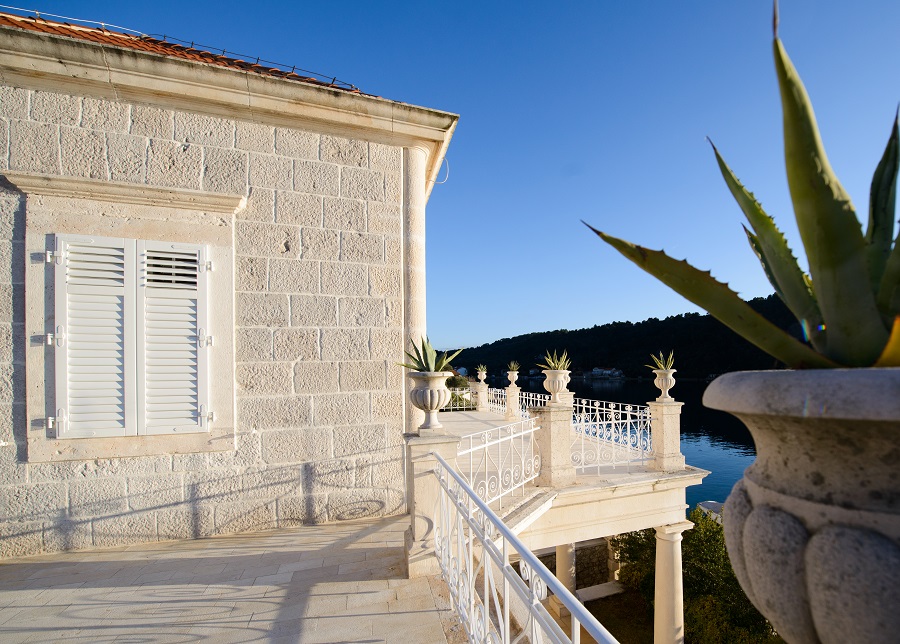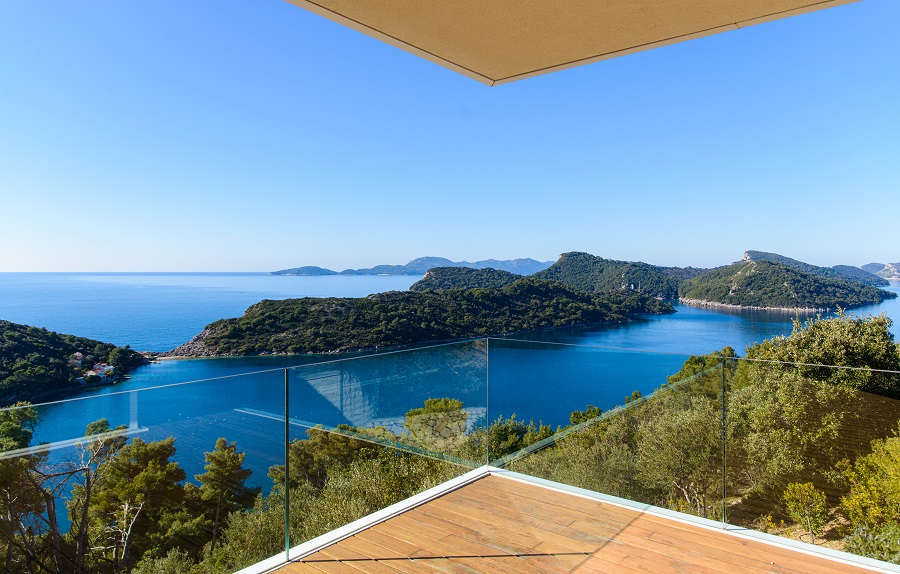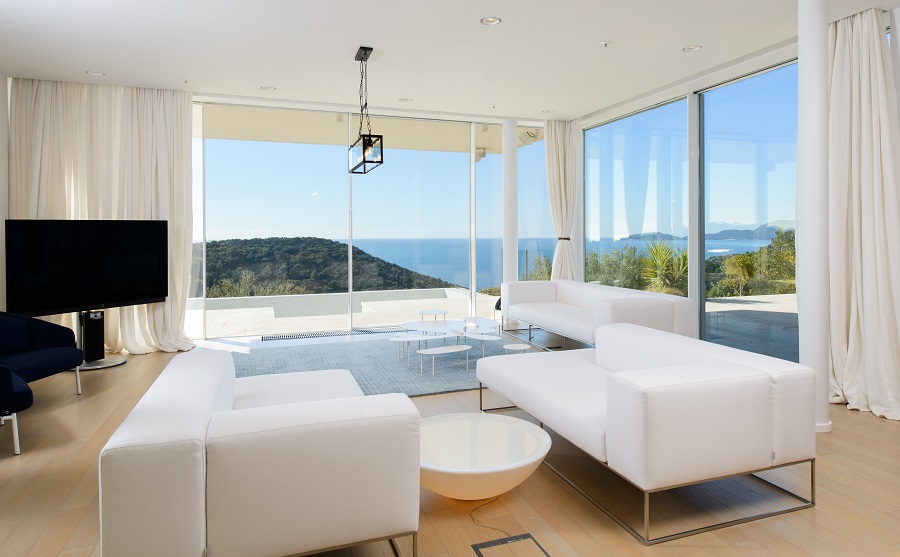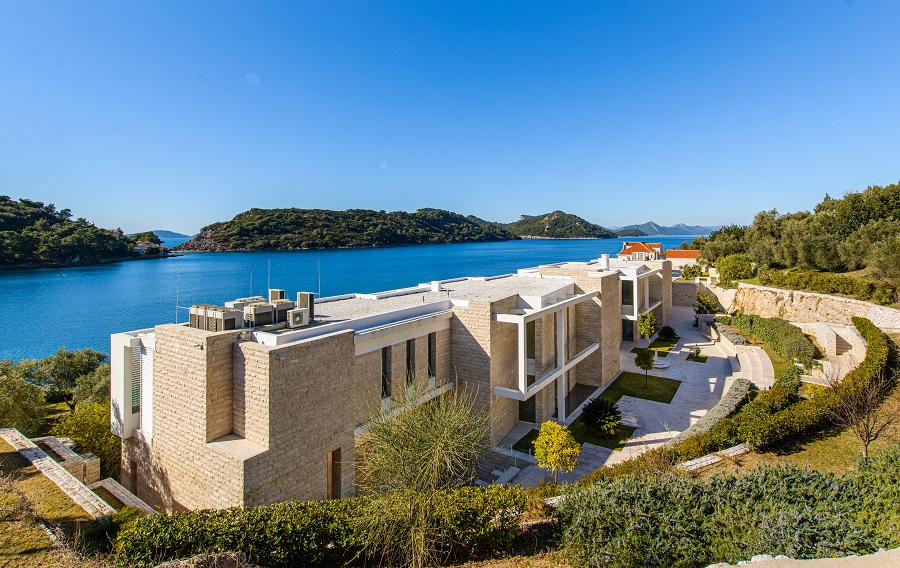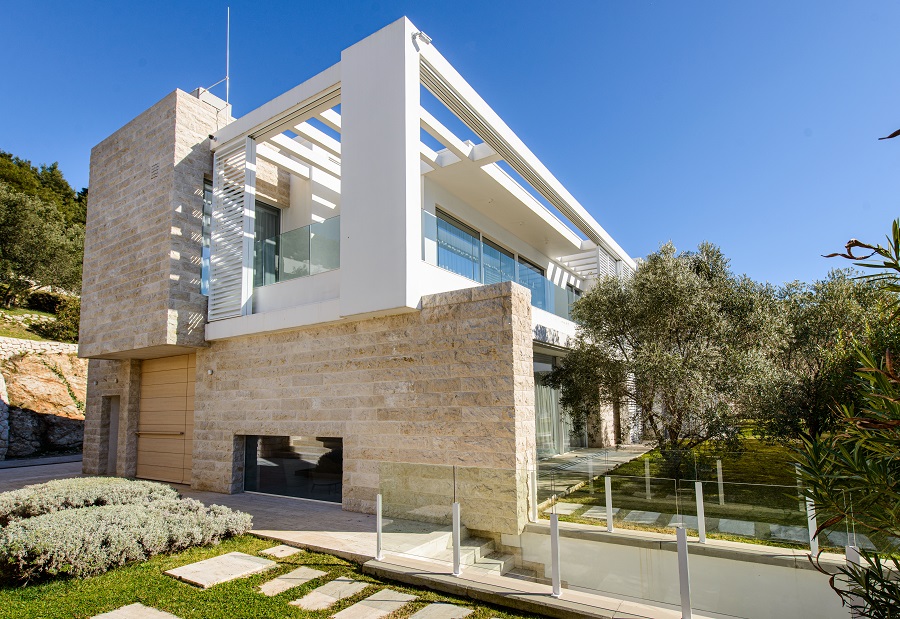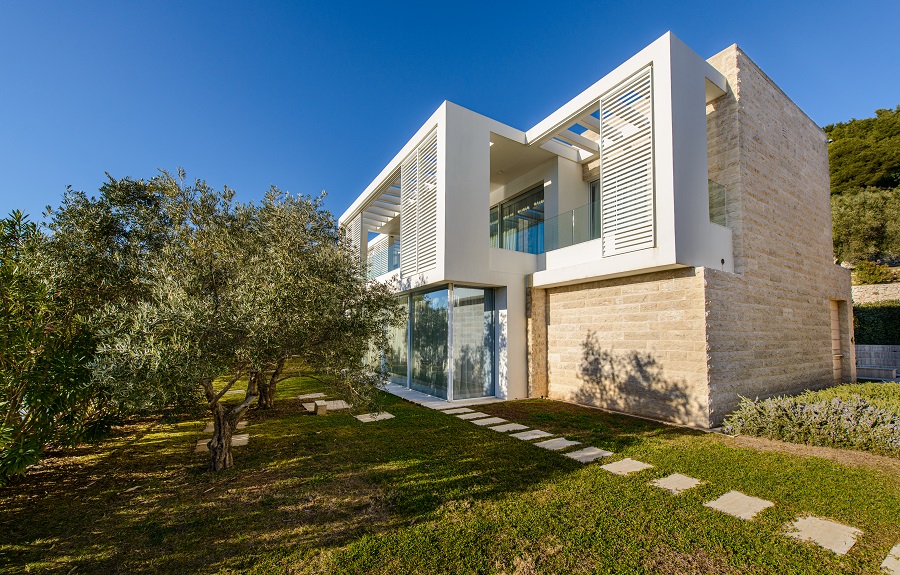DZS: Croatia Has 168,200 Active Business Entities
ZAGREB, 20 Feb 2022 - There were 307,413 business entities registered in Croatia at the end of December 2021, and 54.7% of them, or 168,242, were active, according to data from the national statistical office (DZS).
The majority of the registered entities were trade companies (230,741), of which 133,928 of 58% were active.
There were 73,113 institutions, bodies and organisations, of which 34,844 were active, while the number of cooperatives stood at 3,539, including 800 active ones.
At the end of December 2021, there were also 88,205 crafts and freelancers in Croatia.
Broken down by activity, the majority of business entities were in wholesale and retail trade, and the repair of motor vehicles and motorcycles, accounting for 17.8% of registered and 16.1% of active entities.
Manufacturing accounted for 7.8% of registered and 9% of active entities, while 10.2% of registered and 12.7% of active entities were in professional, scientific and technical activities.16.3% of registered and 13.2% of active entities were in other service activities.
Most active entities privately owned
Most legal entities were privately owned, a total of 132,582 or 78.8%. The state owned 0.8% of the entities, 0.4% had mixed ownership, 0.5% were owned by cooperatives, and 19.5% of the entities had no information about ownership type available.
Most of the active legal entities, 88,220 or 52.4% had between one and nine employees, while 62,278 or 37% of the entities had no employees. Furthermore, 13,683 entities had between 10 and 49 employees, 3,470 between 50 and 249, 319 between 250 and 499, and 272 entities had 500 or more employees.
Limited liability companies accounted for the largest share of business entities, with 166,209 registered and 98,630 active entities. They are followed by simple limited liability companies, with 61,614 registered and 33,791 active ones.
The largest number of registered business entities were based in the City of Zagreb (32.3%).
For more, check out our business section.
€266k Contracts Inked for Zagreb Health Institutions' Post-quake Reconstruction
ZAGREB, 20 Feb 2022 - A total of 43 contracts, worth 1.98 billion kuna, have been signed so far for the post-quake reconstruction of health institutions in Zagreb and its surroundings, since the 22 March 2020 devastating earthquake, according to the data provided by the Health Ministry.
Since the advertisement of a tender inviting healthcare institutions to apply for EU grants, there have been 60 applications, most of which are from university clinical centres, general hospitals and local health centres.
Croatia will be able to use money from the European Solidarity Fund (ESF) for earthquake relief until June 2023, one year longer than the initial 18 months given.
When it comes to urgent post-quake reconstruction, one application refers to works valued at HRK 4.2 million where to date, outlays have been disbursed to cover HRK 584,000 of that amount.
For instance, the damage caused by the tremor to the University Hospital Centre (KBC) Zagreb is estimated at HRK 1.1 billion.
The City of Zagreb administration plans to submit an additional 20 projects for the reconstruction of local health institutions for these grants.
(€1 = HRK 7.5)
For more, check out our business section.
Villa Katino, 100-Year-Old Sipan Estate as New Elite Tourism Spot
February 20, 2022 - The old summer house called Villa Katino, a monument of historical and cultural significance on the island of Šipan, has been restored to its original appearance, while three new, modern five-star villas have been built on the surrounding land intended for guests of high spending power.
Villa Katino, which was built back in 1908 on a large estate on the island of Šipan, and which was completely neglected, dilapidated, and overgrown with vegetation and olives until ten years ago, is today a residential building of the highest category in this area.
Namely, the hundred-year-old estate has developed into a complex for elite tourism. The initial investor had been looking for an ideal location for vacation for years. Privacy, security, excellent quality, and the possibility of hosting the most distinguished guests were needed, as well as the proximity of the airport and the possibility of receiving mega yachts in front of the facility. All this was found in the Port of Šipan on an islet that belongs to the group of Elaphite Islands not far from Dubrovnik.
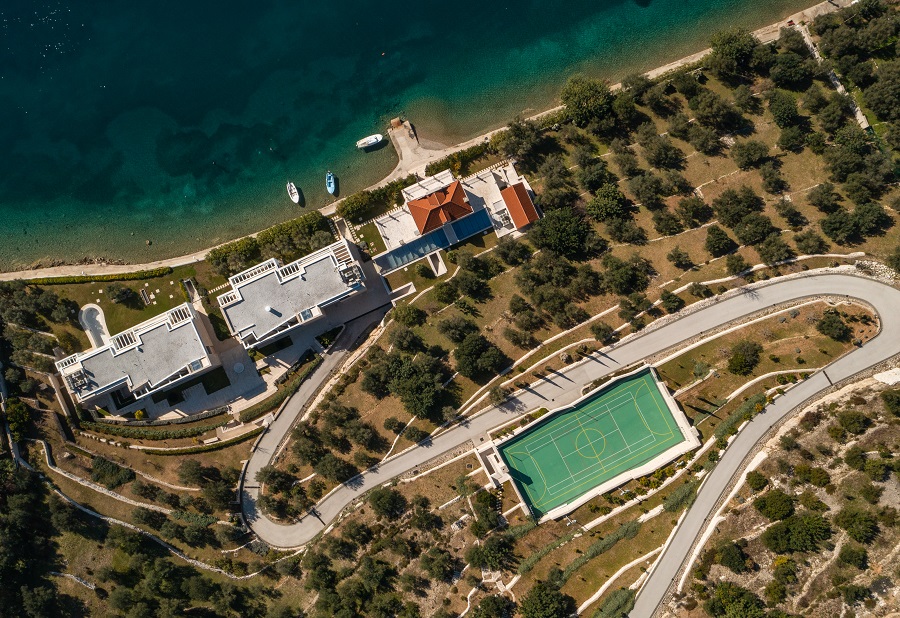
The old mansion with the surrounding land, which once also housed the servants' house, was bought in 2009 by the Croatian company Mikado, whose shares were later taken over entirely by a Swiss investment fund. The design of the complex itself began in 2011, and the entire project was realized in 2017.
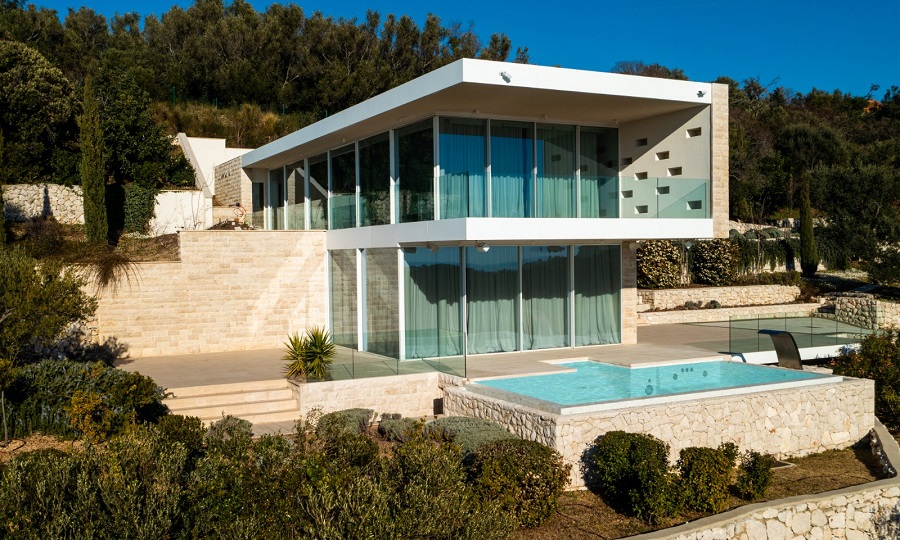
The luxury complex of Villa Katino covers 5.5 hectares of land and consists of four five-star villas, each of which covers over 1,000 square meters and ancillary facilities, with a total accommodation capacity of nine bedrooms for a maximum of 18 people.
- Renovation and construction followed the natural appearance and development of the island. Villa Katino itself, otherwise a monument of historical and cultural significance, has preserved its original appearance, as it had during the previous owners, the noble family Stjepović - the management of Mikado says.
Three new, modern villas, on the other hand, were built on the overgrown terrain of an old summer house. Each is different in terms of architectural design and interior design, and each is equipped with the most modern designer furniture and unique lighting fixtures. The interiors are decorated with paintings and works of art of prominent Croatian masters, and the 80-square-meter presidential suite is particularly impressive. The premises of the complex have underfloor and ceiling heating and cooling, ventilation, and the functions of all facilities are managed by the smart home system.
- The program of stay is designed as a recreational and educational vacation with active acquaintance with the natural, historical, cultural, artistic, and gastronomic beauties of Croatia - says the management of Mikado.
Guests have at their disposal three swimming pools with counter-current swimming and underwater massage, geysers and waterfalls, outdoor sunbathing areas, saunas and steam and ice baths, showers with cold mist and tropical rain, beauty salons, fitness, billiards, tennis courts, a cinema and mini-amphitheatre for outdoor music and theatre performances. There is also a private wine cellar that stores thousands of bottles of premium, mostly Croatian, wines and an olive grove with about a thousand trees from which up to 3,000 litres of its own olive oil is produced each year at local oil mill, depending on the harvest.
The entire investment into the project was done in accordance with the laws and all the rules of the Republic of Croatia which has been confirmed by independent auditors and lawyers. The management of the company further emphasized that the project was also accompanied by large investments in infrastructure that is used by all residents of the island. One of the most substantial contributions is the construction of a local road on the island which improved substantially the infrastructure. Among other things, a substation was built, and the reconstruction of a MV power line has been completed, which has enabled a better supply of electricity to the entire town. Moreover, Mikado provided plans to the local authorities for a sewerage system on island. Mikado has created additional working places and contributed to the economic prosperity of the local area.
Villa Katino is one of the few buildings in Croatia built using the golden ratio method. The Greek Parthenon, the French Notre Dame, and the Taj Mahal, for example, were built using this method.
The golden ratio is a compositional law that represents a unique ratio of parts to the whole, in which the ratios of the parts to each other and each part to the whole are equal.
Learn more about the magical Elaphiti islands in the Total Croatia Elaphiti Islands in a Page guide.
Pundits Comment on Developments Surrounding Minister's Arrest
ZAGREB, 20 Feb 2022 - Political analyst Žarko Puhovski said on Saturday that Minister Darko Horvat's arrest will not undermine the government if the matter remains within the limits of that minister, and Davor Gjenero believes that speculations of snap elections are dangerous amid unpredictable global developments.
Construction and State Assets Minister Darko Horvat was arrested on Saturday on the abuse of power charges, and upon his apprehension the minister dismissed the charges.
The Office for the Suppression of Corruption and Organised Crime (USKOK) on Saturday evening stated that based on a police report, it launched an investigation of two persons on suspicion of abuse of office, and that another four suspects in the case are accused of incitement to the offence.
USKOK did not reveal the identities of the six suspects, however, earlier in the day media outlets reported that the suspects are Construction Minister Darko Horvat, his former aide Ana Mandac, as well as Deputy Prime Minister Boris Milošević, the Regional Development Ministry's state secretary Velimir Žunac, the director of the administration for assisted areas, Katica Mišković, and former minister Tomislav Tolušić.
According to USKOK's statement, in his previous capacity as economy minister, Horvat is believed to have signed off on the disbursement of grants in the amount of HRK 2.6 million (€347,000) to some businesses that are ineligible for aid, between November 2018 to the end of 2018, at the urging of Tolušić, Milošević, Žunac and Mišković.
Upon his arrest, Horvat resigned.
Commenting on the developments, the analyst Puhovski told Hina on Saturday evening that in the event that the case remained within the limits pertaining to Horvat, the cabinet led by Prime Minister Andrej Plenković would not be negatively affected by the scandal.
"The developments could even make things easier for PM Plenković, as in this way he got rid of the minister with the poorest performance", said the pundit.
"However, if the whole case expands to include Deputy Prime Minister Boris Milošević, all this will grow into a serious issue both for the government and for the ruling coalition. In such scenario, it is possible to have discussions on early elections, however I do not believe that we will have them soon," said this analyst.
Puhovski agrees with Plenković that the gravity of the arrest of a minister required the appearance of the State Attorney General in the public to give further explanations.
Upon Horvat's arrest, Plenković held an impromptu news conference in which he said, among other things, that he expected the State Attorney's Office (DORH) to explain the urgency of the actions taken.
However, DORH said later that it and the attorney general would not comment on the Prime Minister call on DORH, and that "the competent state attorney's office and the USKOK anti-corruption office are taking action in line with the law."
Puhovski said that this was the second time in the present-day Croatia that an incumbent minister was arrested, and he believes that it is unfair from DORH to give only a press release claiming that prosecutors are doing their job in line with laws and that they will not give any explanations to anybody.
"They should have informed the general public what this is about, as the arrest concerns a minister," said Puhovski.
One pundit for early election, another believes it would be dangerous in current circumstances
On the other hand pundit Anđelko Milardović criticises PM Plenković for making statements which, he says, interfere in the work of DORH.
This pundit slams Plenković for "authoritarian tendencies that also smack of the dictatorial way of governance."
Milardović also said that Horvat should have been dismissed instantly, and that the Prime Minister should also have resigned.
While Milardović believes that the ruling majority should dissolve itself, another political analyst Gjenero told Hina that calling for snap elections in the current circumstances of unpredictable global developments, is dangerous.
Gjenero finds it odd that the arrest of Horvat and this case implicating his former aide Mandac was not a follow-up to "the wind park" case in which Mandac was also a suspect, but that this is being regarded as an entirely different matter.
This analyst also points out that the latest allegations concern the coalition between the ruling Croatian Democratic Union (HDZ) and the biggest party representing an ethnic minority, the Independent Democratic Serb Party (SDSS).
"This is always a politically sensitive situation, I am very reserved about what that can be actually," he said, adding that the affair could give ammunition to those who claim that the HDZ-SDSS coalition is an outcome of a trade-off.
"If there are any elements hinting at corruption, those involved must immediately step down, however I find this whole case an odd precedent", he added.
More on this story from yesterday:
Minister Horvat Denies Guilt, Anti-Corruption Office Demands Remand in Custody
State Attorney's Office says Won't Comment on PM's Statement After Minister's Arrest
Grbin: Election Only Salvation for Croatia
Čačić: Horvat Has to Go, Reformists' Support Depends on Police Operation's Results
Croatian Prime Minister Blames USKOK for Ruining Croatia's Spectacular Week
PM Calls on Prosecutors to Explain Case Implicating Minister Horvat
Police Probe is Targeting Horvat and Milošević, Aladrović not Implicated
Croatia's Coronavirus Update: 2,055 New Cases, 42 Deaths, 4,491 Recoveries
ZAGREB, 20 Feb 2022 - In the last 24 hours, there have been 2,055 new cases of those infected with SARS-CoV-2 in Croatia, and another 42 COVID patients have died, the country's COVID-19 crisis management team reported on Sunday.
Croatia currently has 24,954 active cases of the infection, and of them 1,720 are receiving hospital treatment, including 125 placed on ventilators.
Roughly 4.47 million tests for coronavirus have been conducted in the country since the outbreak of the pandemic, detecting 1,041,212 cases of the infection. So far, 1,001,443 patients have recovered, including 4,491 recoveries in the last 24 hours.
To date, 65.37% of adult Croatians have fully been vaccinated against this disease.
For all you need to know about coronavirus specific to Croatia, make sure to bookmark our dedicated section and select your preferred language if it isn't English.
SDA, SDP and NS Slam HNS Conclusions, While Dodik Welcomes Them
ZAGREB, 20 Feb 2022 - Some of the political parties representing Bosniaks, and those describing themselves as civic political parties on Saturday, criticised the conclusions adopted by Bosnia and Herzegovina's Croat umbrella association (HNS BiH), while Bosnian Serb leader Milorad Dodik welcomed the document.
During the extraordinary convention in Mostar, it was said that the Croats will launch the issue of restructuring BiH if them being outvoted at elections isn't brought to an end.
HNS BiH concluded that there are currently no legal or constitutional conditions to call an election.
Should the election be called in any case based on an unconstitutional law, HNS BiH will take all available legal and political steps to oppose the continuation of unlawful moves, the Bosnian Croat leader Dragan Čović said after the meeting.
The Bosniak SDA BiH party as well as the SDP BiH and Our Party ("Naša Stranka" that is the NS party) said on Saturday that they viewed the conclusions as blackmail and that they would not be threatened.
The NS party, along with the SDP BiH party, is boycotting the negotiations on the election legislation overhaul as long as the Bosnian Serb officials are obstructing the state institutions' work, stating that the Mostar conclusions made the things more complicated.
The Serb member of the Bosnia and Herzegovina tripartite presidency, Milorad Dodik, who is the leader of the SNSD party, said that the problem of one people in Bosnia and Herzegovina should be viewed as the problem of all in the country.
"Ignoring the outvoting of one people (the Croats) in Bosnia and Herzegovina pushes the country into instability in a long run and the responsibility for that lies with those who turn a blind eye to the issue," said Dodik.
Talks between leading Croat and Bosniak parties regarding the electoral reform in Bosnia and Herzegovina will continue next week, it was also said after the extraordinary convention of the Croatian National Assembly of Bosnia and Herzegovina (HNS BiH) in Mostar on Saturday.
For more, check out our politics section.
Construction of Hotel Hyatt in Old Maraska Building in Zadar Finally About to Begin
February 20th, 2022 - The new hotel should have 150 rooms and suites, as well as a residential part with 115 apartments that will make up a 'mini city' complete with restaurants, bars and shops
It’s been a long time coming, but it seems that construction works are finally about to begin on the old Maraska building in Zadar. The former factory is to be transformed into a high-category Hotel Hyatt with an addition of a residential area, owned by the Turkish Dogus Group.
As reported by Slobodna Dalmacija, a source from the Dogus Group said that cleanup works are underway on the grounds of the old building, to be followed by securing the structure which is in extremely poor condition.
‘Seeing that the structure is really old and neglected, we’ll have to secure it first, and then, in ten days or so, we’ll have an official opening of the construction site where all Zadar media will be invited’, said the source, adding that everyone at the Dogus Group is looking forward to construction kicking off.
‘We’re very pleased to finally be able to announce we’re moving forward! Starting from today, there’ll be no more waiting or holdups, and we hope we’ll soon make the people of Zadar proud with the new hotel which will surely stimulate tourism on a higher level’, said the source.
The investment is worth €120 million, and the hotel should have around 150 rooms and suites, a spa, a wellness centre, a conference hall, restaurants and bars. The development will also have a residential area with 115 apartments making up a ‘mini city’ together with restaurants, bars, shops and other attractive facilities.
Construction of the new hotel was originally supposed to begin in 2016, but was delayed due to complications in the development of the other part of the hotel complex. The Dogus Group together with Hyatt had to wait for the situation to clear up in regards to urban planning in the area around the hotel. They’re participating in the tender for Marina Zadar, and it remains to be seen if they managed to resolve the matter.
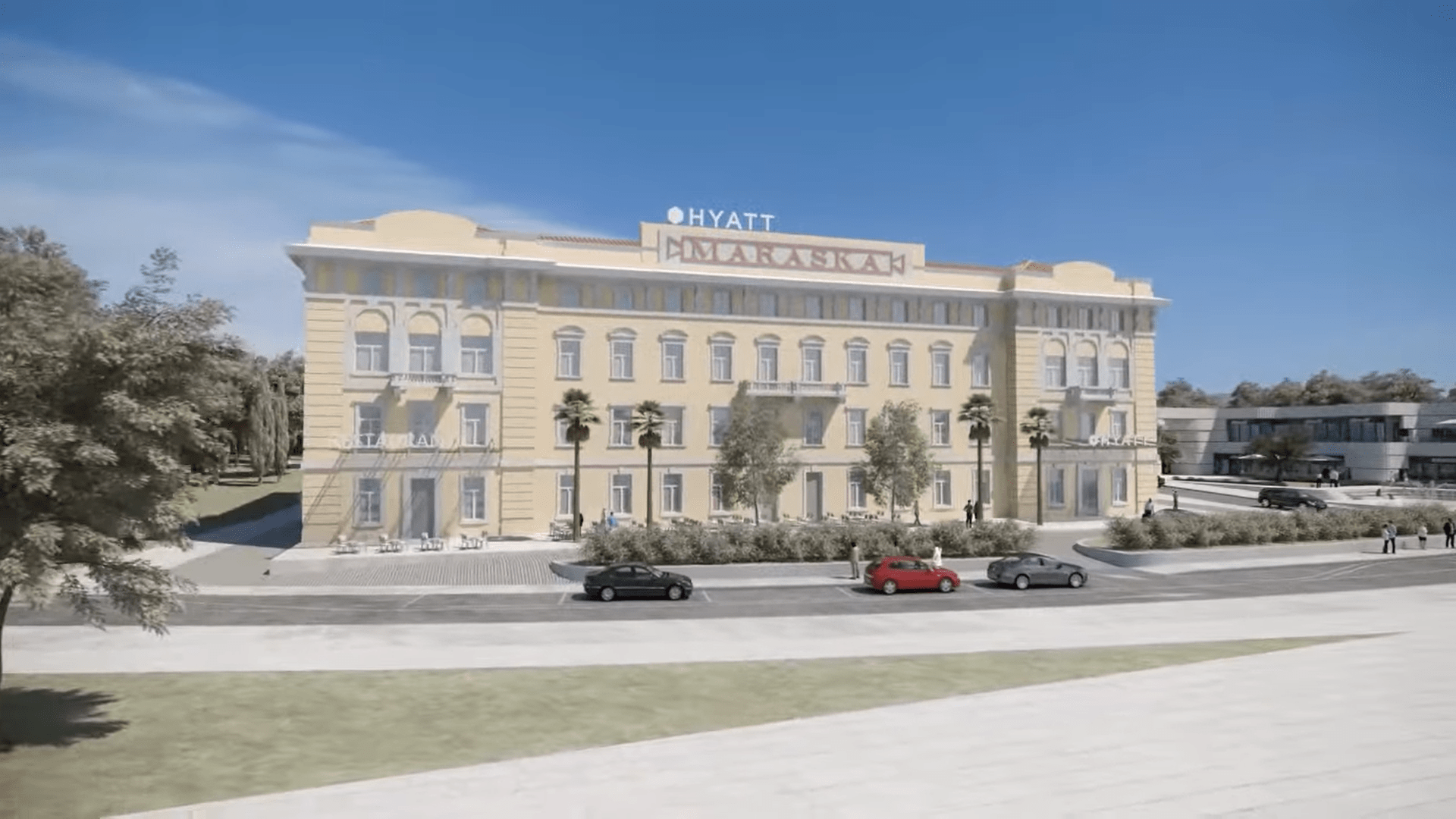 Hyatt Zadar - Dogus Group
Hyatt Zadar - Dogus Group
The Dogus Group is one of the bigger foreign investors in Croatia, namely in nautical facilities in Šibenik, Sukošan and Zadar. Representatives of the Croatian subsidiary of the Turkish group have stated once before that the company invested around 270 million euro in Croatian tourism in the ten years they’ve been doing business in Croatia.
In mid-2019, the company Crodux, formerly owned by Tankerkomerc, announced its intention to build a large development near the Maraska building, namely in the area from the Tankerkomerc administrative building to the marina of the same name. This Dogus group has confirmed this as one of the reasons for the delays in the Maraska project.
At one point, Dogus also planned to take partial ownership of Tankeromerc and merge the Maraska Hotel project with Marina Zadar, but the pre-bankruptcy settlement fell through once it turned out that Tankerkomerc wasn’t a confirmed future concessionaire of the marina and that the story was far from over.
The state will soon take possession of Marina Zadar, based on a final judgement in their dispute with Tankerkomerc that was launched about ten years ago.
Tankerkomerc believes that it should be the owner of the marina on the basis of many years of ownership, operation and investments in the facility, and the state disputes this because the marina is considered to be maritime property.
According to the latest verdict from January 2020, the marina should have been returned to the Ministry of Maritime Affairs, but Tankerkomerc, which was taken over by General Ivan Čermak in the meantime, filed an appeal that has since been resolved in favour of the Ministry.
Tankerkomerc also has a dispute with the state concerning the return on their investments in the marina in the amount of €40 million.
Roman Mosaics Unearthed in UNESCO-Protected Historical Centre of Stari Grad, Hvar
February 20, 2022 - Founded by the Ancient Greeks more than 2,400 years ago, Hvar's oldest town continues to reveal secrets of the past, this time from the Roman Era.
Text from the Stari Grad Museum Facebook page.
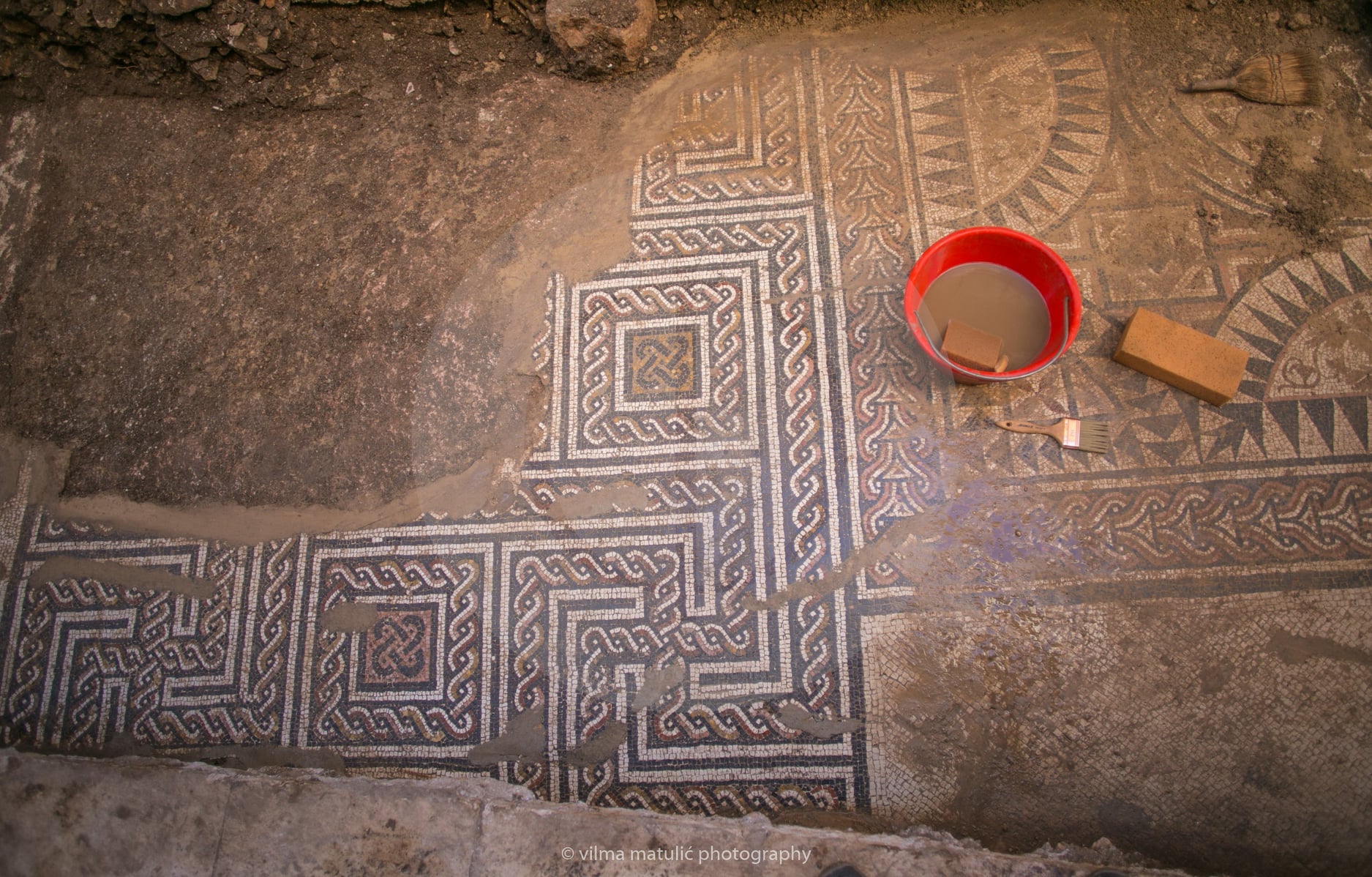
Archaeological excavations are currently underway in Stari Grad on the island of Hvar, because of the construction works on the town's water supply and sewage network. Part of the excavation was carried in the Middle Street (about 20m in length) where, in addition to the previously known mosaic (discovered in 1923), we found the remains of several other rooms with the remains of mosaic floors.
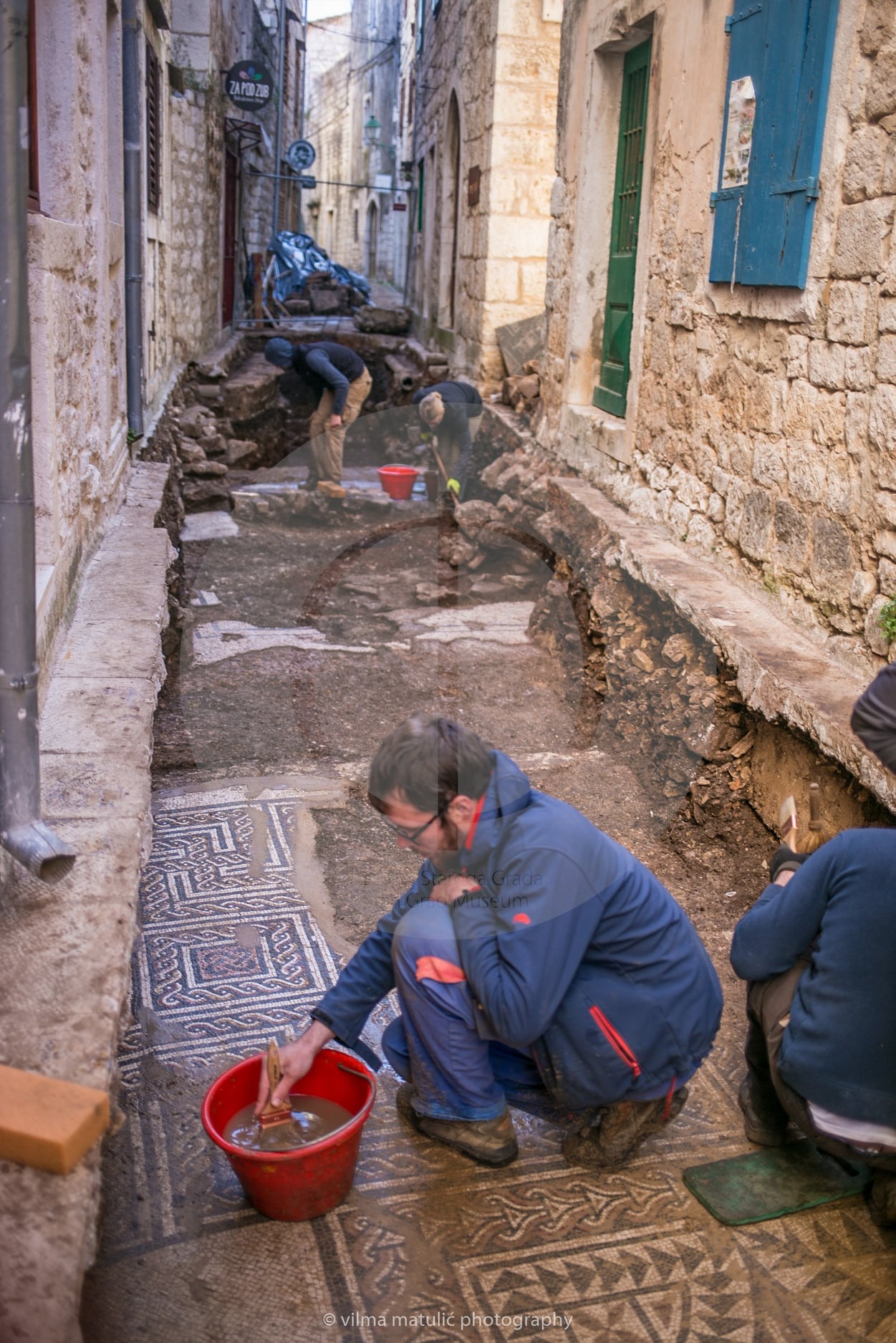
The mosaics are decorated with multicolour geometric and floral motifs and are of superior workmanship. By analogy with similar mosaics and known workshop styles, thy can be dated to the 2nd century AD. We will have a better insight into the purpose of this luxurious building of the Roman Faria after the analysis and interpretation of archaeological finds and after merging all the plans of rooms with mosaic floors under surrounding houses, which were excavated in previous decades.
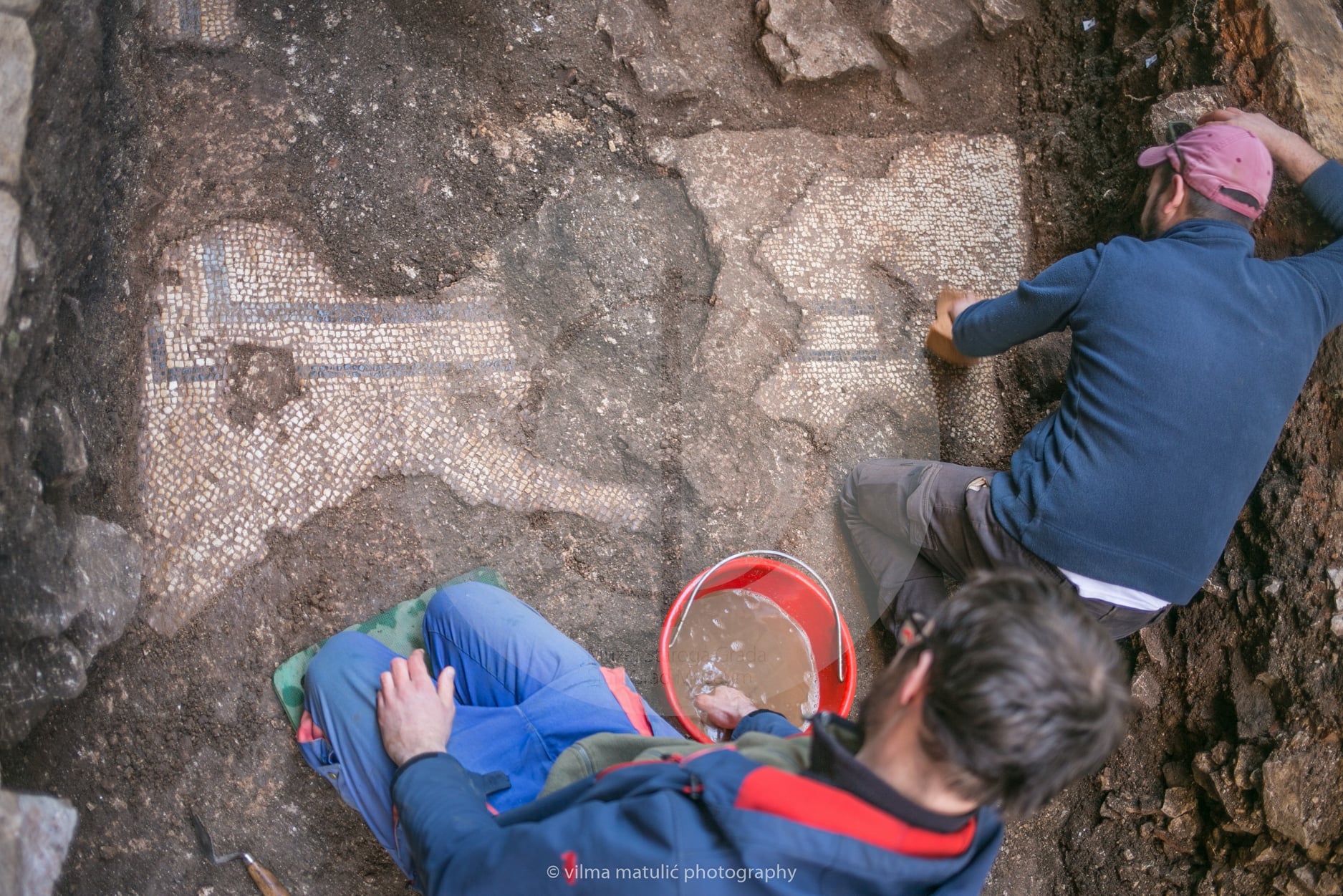
In the past one hundred years, this area has been excavated by numerous archaeologists (Frane Bulić, dr. sc. Jasna Jeličić-Radonić, Ana Kordić Galić), while the last conservation and restoration work on the mosaics was carried out by dr. sc. Branko Matulić and dr. sc. Tonči Borovac. The current excavations are led by dr. sc. Marina Ugarković from the Institute of Archaeology, while the deputies are Andrea Devlahović from Stari Grad Museum and Martina Korić from the Institute of Archaeology. Dr. sc. Sara Popović from ArheoProjekt and a multi-member team of young archaeologists from all over Croatia are also participating in the excavations, which are conducted under the supervision of Saša Denegri from the Conservation Department of the Ministry of Culture in Split.
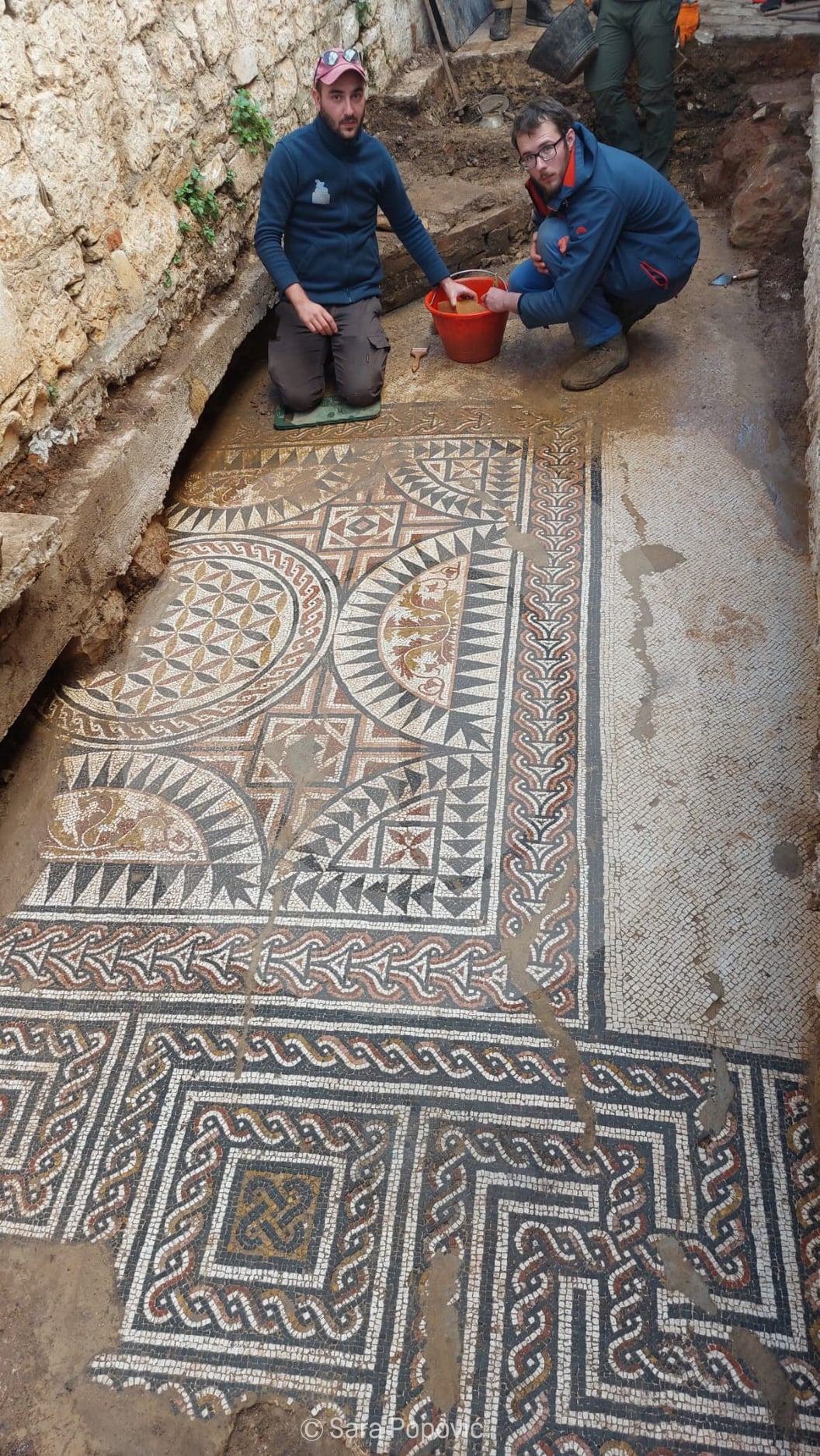
Finally, we should mention that the decision on the presentation of the preserved mosaics will be made by the Conservation Department from Split in cooperation with the Stari Grad Municipality.
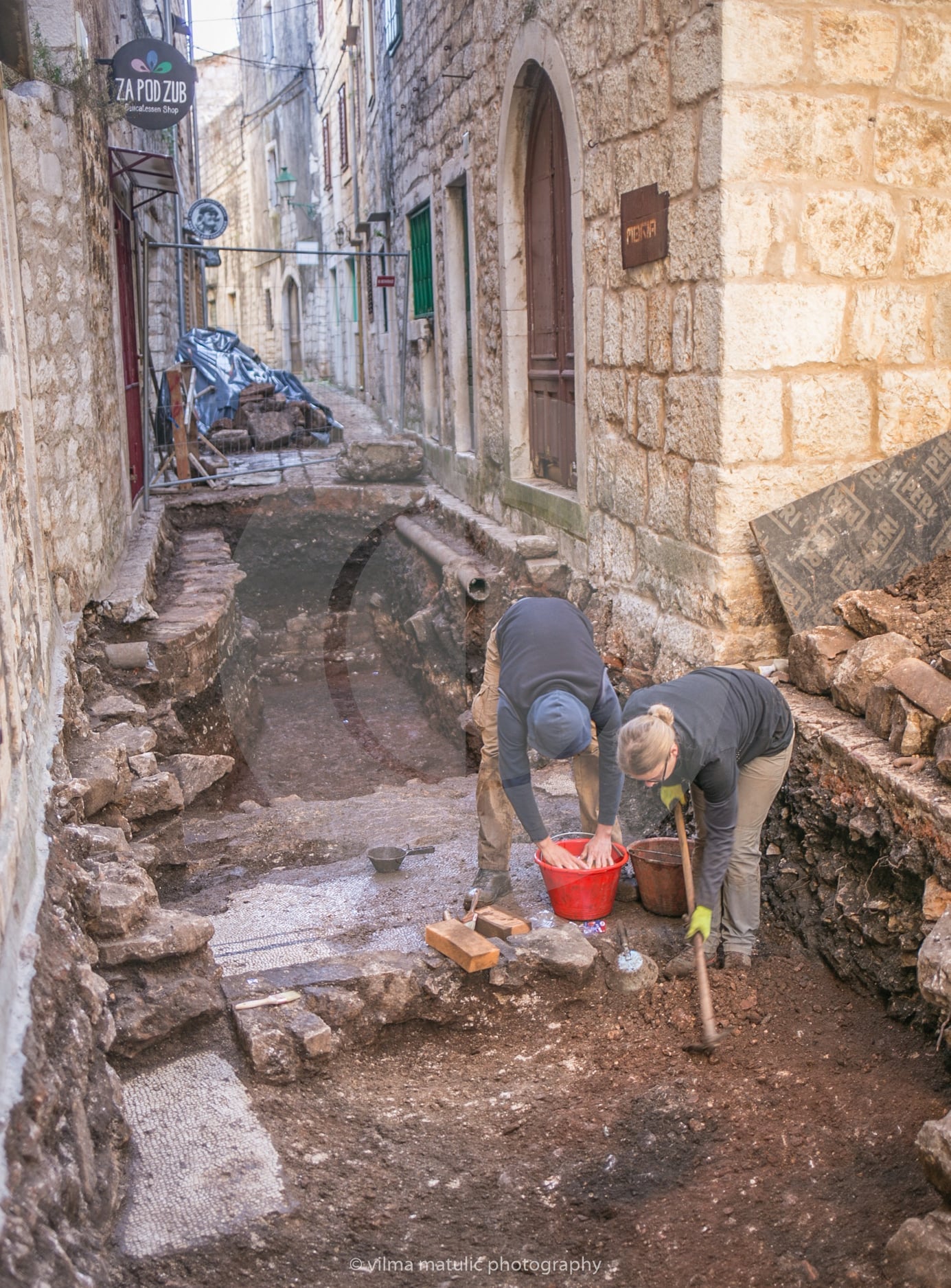
[We remind you that the use of photos is allowed as long as the photographer's name is mentioned.]
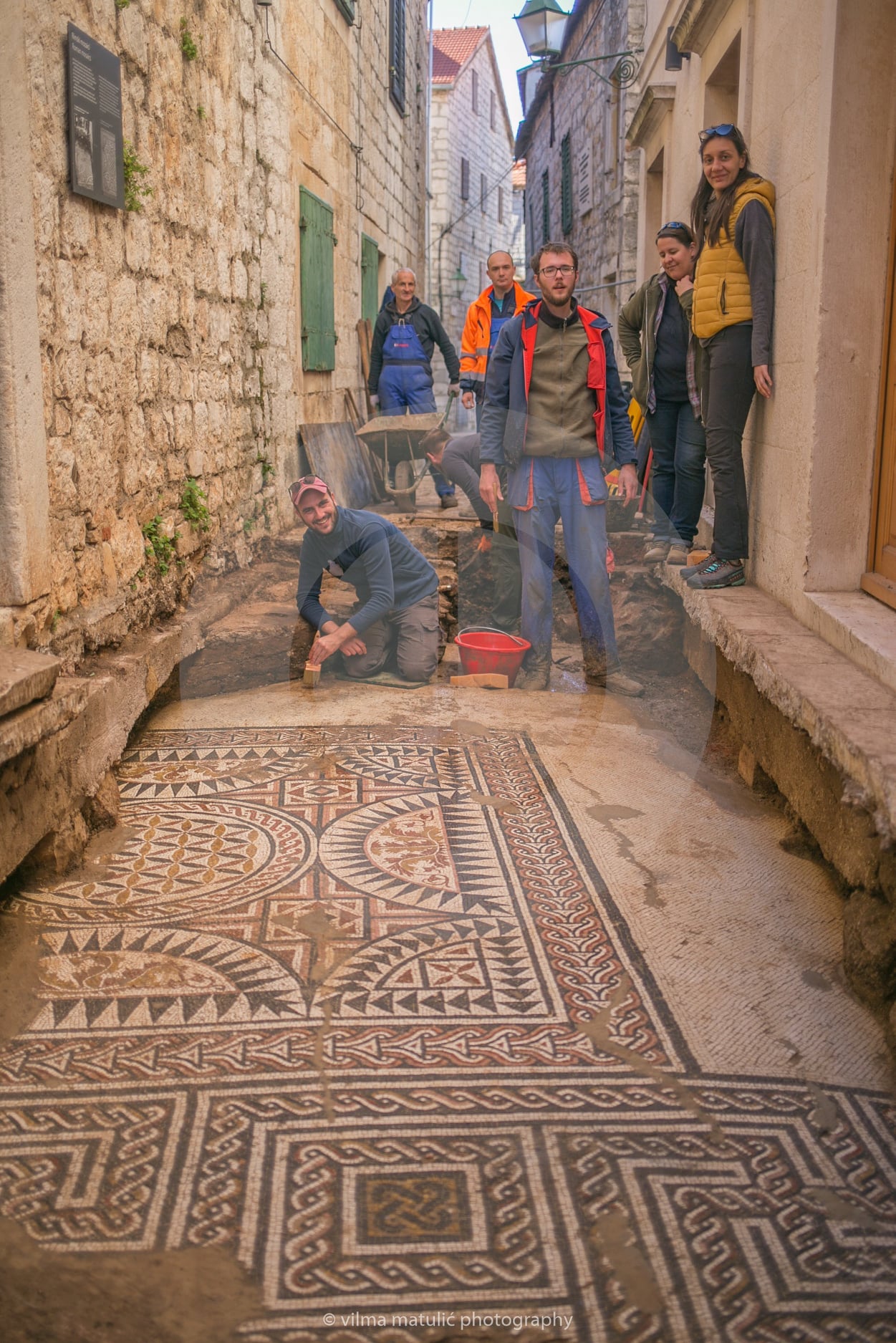
To learn more about this amazing town, check out the Total Croatia Stari Grad in a Page guide.
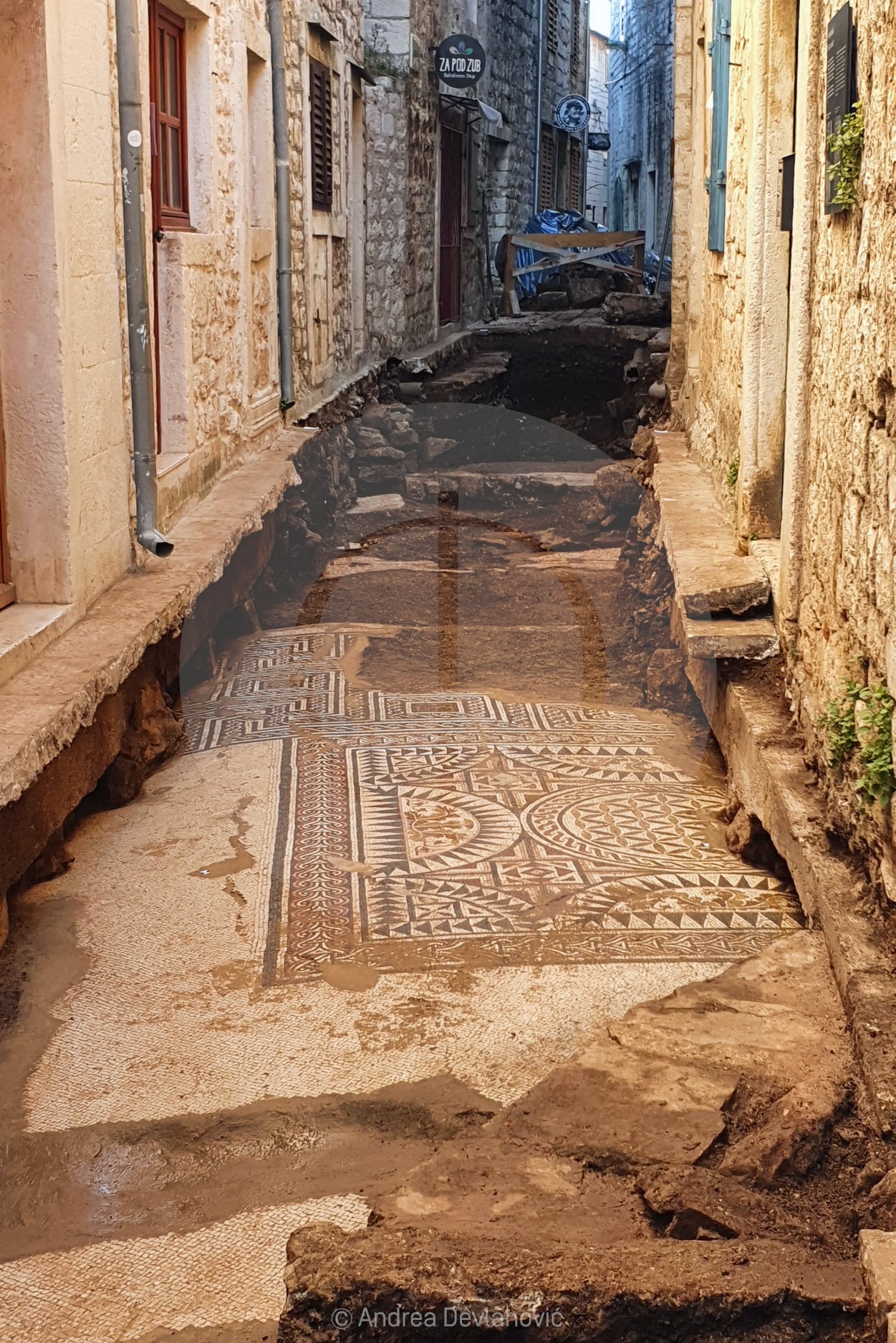
Professor Mario Plenkovic, Father of Andrej Plenkovic, Passes Away
February the 20th, 2022 - Professor Mario Plenkovic, the father of Croatian Prime Minister Andrej Plenkovic, has sadly passed away in Zagreb following a long and difficult illness.
As Vecernji list writes, following a long and severe illness, Professor Mario Plenkovic, the father of Prime Minister Andrej Plenkovic, passed away in Zagreb on Saturday night, it was confirmed to Hina by the Croatian Government.
That night in KBC Zagreb (Rebro), after a long and severe illness, Professor Mario Plenkovic (1947), the father of Prime Minister Andrej Plenkovic, passed away after a long and difficult illness, government spokesman Marko Milic announced. The funeral of the late Professor Mario Plenkovic will take place among close family members.
Professor Mario Plenkovic was otherwise a very successful full professor of information sciences at the University of Zagreb, and since 2019, he'd been professor emeritus of the University of Zagreb and the University of Maribor in neighbouring Slovenia.
Since back in 2014, he had been a member of the European Academy of Sciences and Arts (EASA). From 2013 to 2021, he led the doctoral study of Strategic Communication Management Alma Mater Europaea/European Academy of Sciences and Arts in Maribor. He was also the editor-in-chief of the scientific journals Informatologia (1980-2021) and Media, Culture and Public Relations (2001-2021).
For more Croatian news, click here.
BlockSplit: Largest Regional Blockchain and Cryptocurrency Conference Returns in May
February 20, 2022 - BlockSplit, the largest regional conference for the blockchain and cryptocurrency industry, will hold its third edition from May 23 to 25, organized by the Croatian umbrella association for blockchain and cryptocurrencies - UBIK.
The Blockchain Hub Split organizers, as well as participants at the BlockSplit conference held in Split in April 2018, were more than satisfied when they gathered about 500 programmers and entrepreneurs at the Faculty of Economics, who spent two days through workshops and lectures getting acquainted with the fast-growing blockchain technology, best known for enabling the development of cryptocurrencies. In its first edition, the conference attracted 28 world-famous speakers, and in addition to educating and connecting participants from several countries, it also increased the blockchain community.
This year, BlockSplit, the largest regional conference for the blockchain and cryptocurrency industry, will hold its third edition from May 23 to 25, organized by the Croatian umbrella association for blockchain and cryptocurrencies - UBIK, reports Jutarnji List.
The organizers expect that the conference in Split will attract more than 300 experts and companies from all over Europe and beyond and announce top speakers, demonstration of the latest technologies, presentations, networking opportunities, and a week of accompanying educational and entertainment activities. The goal of the conference, as announced, is to accelerate the growth and development of the blockchain industry.
On this occasion, the president of UBIK, Vlaho Hrdalo, stated that the third edition of BlockSplit is coming in the most dynamic period of the blockchain industry since its inception.
"I am especially pleased that with the inclusion of UBIK in its organization, BlockSplit continued its development, which began in 2018. Previous editions of this conference represent a highly elevated scale that I believe we can surpass. As we are still the same people who created BlockSplit, the conference in this issue is in many ways a unique connection to the Web3 community of a country. Considering that we are once again in beautiful Split at perhaps the most beautiful time of the year, the satisfaction of all visitors will certainly not be lacking, especially when we discover the names of renowned lecturers that we have not seen in the wider region," said Hrdalo.
The conference program also includes practical workshops, and topics will cover the areas of marketing, law, design, DeFi, NFT, and gaming. Presentations and lectures by leading experts in the industry are also planned. Thus, visitors will be able to listen live to experts in the development of blockchain technology and learn about new processes for developing WEB3 products. In addition, numerous domestic and international companies will be represented at the exhibition part of the conference. A hackathon will also be held from May 27 to 29.
Blockchain technology offers several possibilities for solving problems in many sectors, said the European Parliament Office in Croatia when they organized a workshop on blockchain technology in various areas of life and work last year.
The European Union, it was pointed out, believes that the proper use of blockchain technology can provide significant benefits to the European industry, economy, and society. Blockchain technology is essential for the digital transformation of the economy and is part of the EU's new program, Digital Europe, adopted by the European Parliament in April 2021. The program aims to invest in digital infrastructure so that strategic technologies can help strengthen Europe's competitiveness, move to a green economy and ensure technological sovereignty.
Blockchain technology, as noted, allows people and organizations who may not know each other to agree and permanently record information without third-party authorization mutually. By creating trust in data in ways that were not possible before, blockchain can revolutionize how we share information and perform digital transactions.
It should be noted that digitalization plays a crucial role in all EU policies, and digital solutions, as stated on the website of the EP Office in Croatia, provide significant opportunities and are critical to Europe's recovery and its competitive position in the global economy.
For more, make sure to check out our dedicated lifestyle section.


